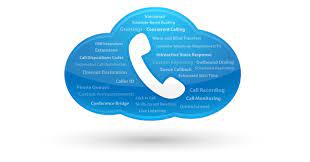BECOME W.I.S.E.R. with Your AI Prompts - A guide for sales managers
Everyone’s wittering on about AI like it’s the second coming. But here’s the rub: if you give it half-baked prompts, you’ll get half-baked answers....

The 'phone is undoubtably a critical business tool; it isn't going anywhere. So it makes little sense to have your 'phone system sitting out on a limb and not integrated with your other business systems. The shift to the cloud provides small and medium businesses with an affordable, simple way to fully integrate their suite of customer facing applications.
Cloud based telephony brings unquestionable benefits to small and medium sized organisations. But what should the sales, service and IT managers be looking for when they are on the hunt for a new system. This article provides a checklist for each role.
But How?
This means higher close rates for sales reps and happier customer satisfaction for the service team. It adds up to greater acquisition and retention ratios, which in turn leads to greater revenue growth.
Whilst everyone uses a 'phone for work there are three main roles that usually get involved in selecting, implementing and using a cloud based 'phone system, the sales manager, the service manager and IT. Here is a typical list of each of the three main role's requirements.
If you are curious enough to set up a free trial, use this link. It will take you to our cloud telephony partner, Aircall's site. There's no commitment - it's a good way to get your hands dirty.
But If you're not ready yet and would like to read around the subject a bit more first here is a good short read.
Of course if you'd prefer to talk through your challenges first, feel free to contact us or if using online diaries are your thing, set up a time that works for you here. We'd be happy to chat through your current challenges and objectives.
Subscribe to our latest news and updates on HubSpot.

Everyone’s wittering on about AI like it’s the second coming. But here’s the rub: if you give it half-baked prompts, you’ll get half-baked answers....

The business world is falling head over heels for AI—and who can blame it? With promises to reduce grunt work, uncover insights, and turbocharge...

Search is evolving - fast. For two decades, SEO has revolved around Google’s algorithm: keywords, backlinks, metadata, and page speed. But with the...